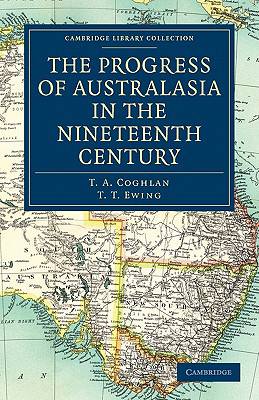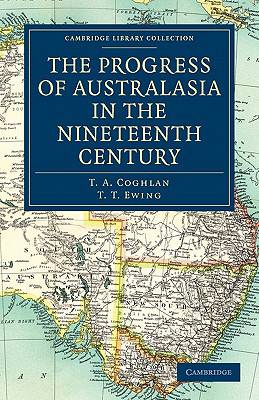
- Afhalen na 1 uur in een winkel met voorraad
- Gratis thuislevering in België vanaf € 30
- Ruim aanbod met 7 miljoen producten
- Afhalen na 1 uur in een winkel met voorraad
- Gratis thuislevering in België vanaf € 30
- Ruim aanbod met 7 miljoen producten
Zoeken
Omschrijving
Sir Timothy Coghlan (1855-1926) was the statistician for New South Wales from 1886, and is regarded as Australia's first 'Mandarin'. His advice was sought by state and federal governments on matters as diverse as tax, public sanitation and infant mortality. In 1905 he took up an appointment as New South Wales government agent in London, remaining there for the rest of his life. First published in 1903, this was one of the first comprehensive histories of Australia, and it benefits greatly from the author's extensive hard statistical data. In contrast to his later Labour and Industry (also reissued in this series), Coghlan and his co-author, T. T. Ewing (1856-1920), discuss the politics behind progress as much as the economics. Charting the country's development from penal colony to urbanised democracy, they conclude with a wealth of statistical data to endorse the assertion that 'the possibilities for Australia's future are tremendous'.
Specificaties
Betrokkenen
- Auteur(s):
- Uitgeverij:
Inhoud
- Aantal bladzijden:
- 502
- Taal:
- Engels
- Reeks:
Eigenschappen
- Productcode (EAN):
- 9781108030724
- Verschijningsdatum:
- 4/05/2011
- Uitvoering:
- Paperback
- Formaat:
- Trade paperback (VS)
- Afmetingen:
- 140 mm x 216 mm
- Gewicht:
- 630 g

Alleen bij Standaard Boekhandel
+ 190 punten op je klantenkaart van Standaard Boekhandel
Beoordelingen
We publiceren alleen reviews die voldoen aan de voorwaarden voor reviews. Bekijk onze voorwaarden voor reviews.











